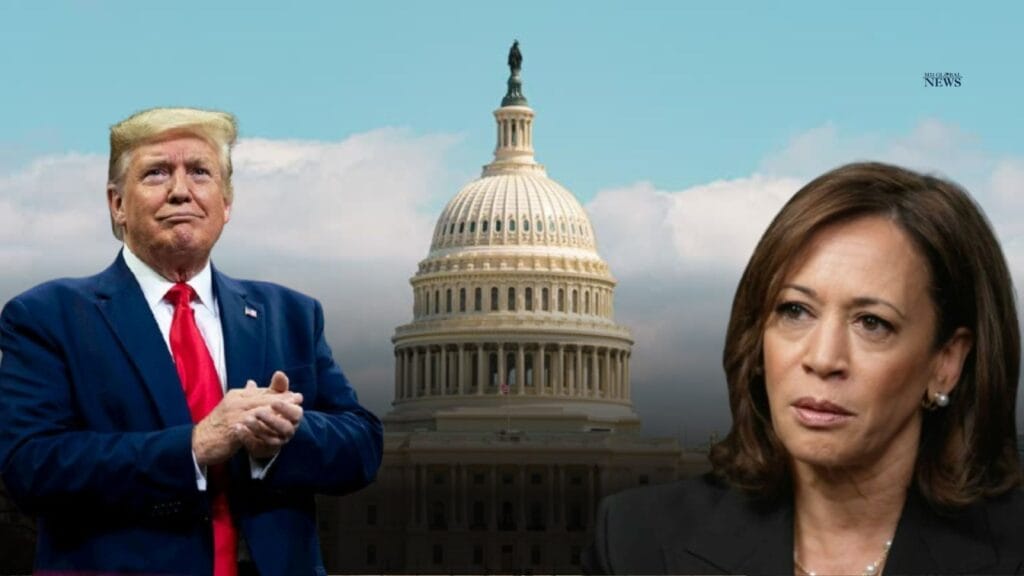When speaking of the 2024 US presidential election, there is one aspect that holds major attention: Donald Trump’s reascend to the White House. But what will actually happen if he doesn’t will give real cause for worry among voters, experts, and even his loudest critics. When stakes are as high as they are today, reactions and consequences become unavoidable. Given this history, it’s no surprise that things may not quiet down at the end of this.
Neck and neck with Democrat Kamala Harris is former President Donald Trump, the Republican challenger.

Since his political debut, Trump has been on a roll of disputing any election results that did not go in his favor, starting from the 2016 Iowa primary and culminating in his 2020 loss to Joe Biden. To this day, Trump still claims that the 2020 election was “stolen” from him, which has further polarized the American public and created deep mistrust in the electoral process. Many fear that a defeat in 2024 will mark the beginning of the same kind of chaos that led to the January 6, 2021 tragedy when his supporters stormed the Capitol of the United States of America.
Trump’s Reluctance to Concede Defeat
The reluctance by Trump to accept defeat- This is one characteristic among many that defines Donald John Trump. Political analyst Donald Nieman of Binghamton University sums this up so eloquently: “someone who will never admit he lost”. This obstinacy goes further than the word; rather, Trump has continued to fight adverse outcomes through legal challenges and rhetoric, even on social media. It hasn’t been without tremendous cost, though; Trump remains twice impeached and in multiple indictments, on some of his efforts to roll back the 2020 election.
It also doesn’t help that Trump has a well-documented legal history: 34 felony convictions surrounding hush-money payments connected to his 2016 campaign. This record, to some, says he might do just about anything to get or maintain power. Losing again, of course, is quite likely, at which point he would contest the election, probably much more fervently than the last time, raising allegations of election fraud or voter fraud without evidence. Continued failure to accept the legitimacy of certain democratic processes may make trust in US elections, which is already fragile, deteriorate further.
The Threat of Violence
It was in 2020 that claims by Trump of fraud led to a deadly riot in Washington, D.C. And it is in 2023 that many fear such could happen again or be worse. This threat is already intimated by the rhetoric in Trump’s rallies speeches as he continuously alleges, without any proof, that “cheating” would cause him to lose. He has used this same unsubstantiated claim of foreign interference in the voting and untrustworthiness in mail-in ballots. The speech may have been created to excite his base but it also provides a framework for resentment and anger which can then translate into violence in case he loses.
And no less intense is the legal terrain this election cycle, in which Republicans have filed more than 100 lawsuits related to voting procedures before a single ballot was cast, leaving open the possibility that any result that Trump’s supporters deem unfavorable might be contested. Legal battles that make things go well, at the very least increase protest or, worst case, ‘sporadic violence’. ” It wouldn’t be out of character for many to take it too far: almost two-thirds of Americans are already anticipating at least a small degree of post-election chaos.
Could It Get Even Worse?
Some fear it will get worse than we have ever imagined. One in four Americans thinks the country might even have a civil war if the election is contested, and one in eight say they have a friend or family member who would take up arms if they thought Trump was cheated, according to a YouGov poll. It is a dangerous attitude that can lead to great turmoil after the election.
Another country, this time, the US intelligence community too sounded the alarm bell, noting that foreign actors could feed violence or create threats against the officials as part of a recently leaked, partly declassified report. Washington is preparing and increasing security as any kind of violence might be restricted and limited to those states that would be battlegrounds during the elections, such as Pennsylvania, Michigan, or Wisconsin but not an upsurge nationwide. A concern shared by the political analyst Donald Nieman is as follows: “If Trump supporters start targeting battleground states to disrupt the certification of electoral votes, that’s a big deal.”
What It Could Mean to the Future of American Politics
It means further division and fuels fire about polarization if Trump is contesting. This situation may further widen the gap between Americans, making bipartisan cooperation on major issues almost impossible. As an observer, I feel that this repeated cycle of distrust and contesting of results can damage the democratic process of the country. While every candidate has the right to legally challenge results, doing so without credible evidence only weakens the overall trust in the system.
In my personal opinion, a possible defeat for Trump would bring a reckoning of the Republican Party as well. The party will continue to imitate its leader’s reaction to unpleasant results or start shifting to candidates who care about the process? This will define whether the party becomes an aberration or repositions itself on the spectrum of American democracy.
While all of this may be pivotal, though, the manner in which Trump reacts to the latter might be more important for the future of America. All will depend on whether it will be a chapter of growth or descend into further division. How this election plays out will surely be felt by Americans.
Analysis by Atul Raj






